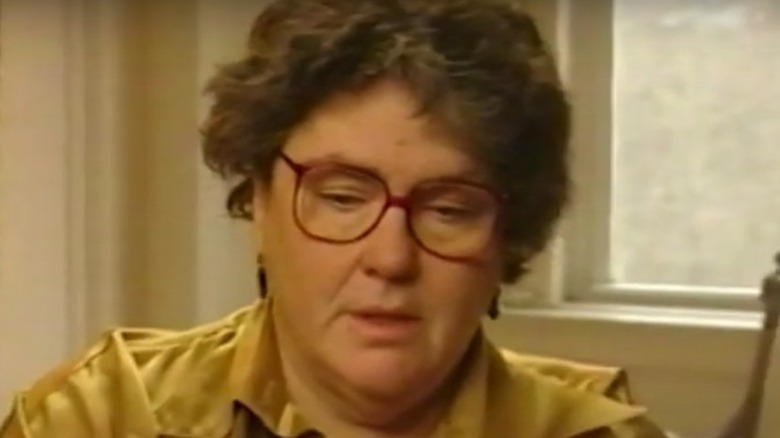What You Should Know About Betrayal At Attica's Elizabeth Fink
The soon-to-be-released "Betrayal at Attica" documentary on HBO Max is the tale of the Attica Prison Riot in 1971. You'd expect something like this to be told from the point of view of the poorly treated inmates that started a riot or, on the other side, a young guard who watched his friends get taken hostage and killed, but no. Realscreen says this documentary is being told from the point of view of the attorney who fought for the prisoners at Attica Correctional Facility. Why? Because in telling the story of Elizabeth Fink, they're also telling the story of those harmed the most in this altercation: the prisoners.
Fink was monumentally important to the Attica rebellion, as the riot is called in some circles, not because she was there fighting on one side or the other when the violence broke out, the stand-off stretched on for four days, or the officers rained bullets when the negotiations stalled. She was there fighting in the aftermath, trying to give the prisoners something they hadn't gotten in a long time. Fink was there to make sure they got the fair shot they were so often denied. And there are some details about this heroic woman that you should know going into the HBO documentary.
Probably the most fascinating part of Fink's fight for the Attica Brothers, as the inmates involved in the Attica Prison Riot are referred, is that she was new to being a lawyer when she first got involved with the case.
Fresh out of law school when defending Attica Brothers
And by "new" we mean she helped draft the lawsuit a month after she'd graduated, according to The New York Times. It may seem like a lawyer that young couldn't pull off defending a group that had willingly taken hostages and overrun a prison for four days, but apparently, it's well within the realm of possibilities.
Thanks to Fink's work on the case — namely, suing the state for all their use of deadly force that ended the lives of 29 inmates and 10 hostages — there was some closure on the table for the loved ones of those who died in the riot. She secured a $12 million victory, as The Philadelphia Inquirer explains, made it possible for the courts to overturn the jury verdict against the prisoners, and continued to fight for official apologies and full disclosure about the incident when the case was over.
The Attica prisoners case wasn't the only case Fink took on that reeked of injustice. She had no qualms fighting the state. Some might even think she enjoyed it. One of her most famous cases, as The Washington Post points out, was in representing the former Black Panther Dhoruba Bin Wahad. Bin Wahad had been in prison for 19 years, according to his official website, framed by the FBI, where he underwent torture that was surely illegal then and now. All of this because he was a leading member and Field Secretary to the Black Panther Party, which a special counterintelligence operation was trying to bring down.
She fought the good fight at every turn
Fink, along with a team of other lawyers, helped Bin Wahad get released in 1990 due to the prosecution withholding evidence. If they hadn't won the case, the former Black Panther likely would have spent the rest of his life behind bars, since he was convicted on charges for allegedly pulling a "drive-by" on the police guarding the DA's house.
One unfortunate truth that remains the same from one great story to the next is that they all eventually end. Elizabeth Fink had spent a lifetime helping people and fighting both in the media and in the courtroom for those the American justice system was failing, but not even her accomplishments, drive, and virtues could save her from the grim reaper's touch. According to The New York Times, Fink passed away on September 24, 2015. Her brother revealed to the press that the cause of her death was cardiac arrest, which seems like too simple a way for a social justice juggernaut like Fink to go out.
This might look like a case where justice again wasn't properly served, this time on a cosmic scale, but Fink had lived a fairly long life. If you add the years of experience to her life, dying at the age of 70 becomes irrelevant. Few people will live with as satisfying a life as hers.
("Betrayal at Attica" drops August 1 on HBO Max. The trailer is posted on YouTube.)


